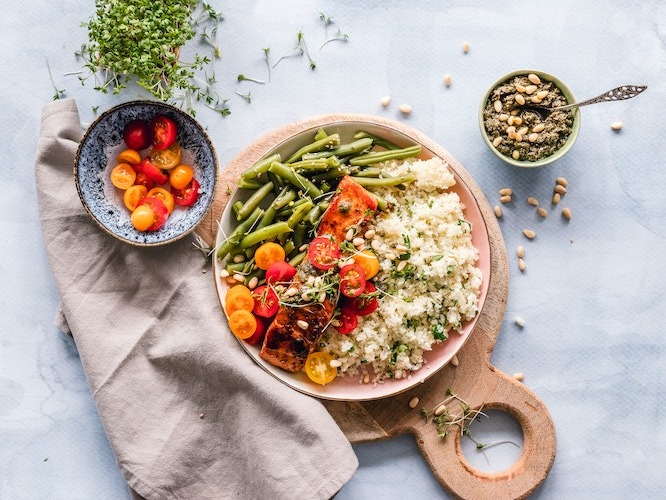What should a runner's macros be?
This question is about Nutrition and Running
The International Society for Sports Nutrition (ISSN) recommends the following for a runner’s macros [ 1
45-55% calories from carbohydrates for general training; >60% for endurance athlete training
15-20% calories from protein
20-30% calories from fat
Carbohydrates typically make up the largest percentage of calories because they are the body’s preferred source of fuel for moderate- to high-intensity exercise, and are also important for muscle repair and recovery [1]
Protein is also important as it provides the necessary amino acids needed for cell regulation, nerve function, and synthesizing new muscle after a workout [2]
Fats are an important source of energy, particularly during lower-intensity activities and exercise. While runners don’t seem to have increased fat needs while training like they do with protein and carbohydrates, choosing high-quality fats can support hormonal health and reduce inflammation, both of which are important when it comes to high-intensity and endurance exercise [3]

People also ask:
References
Kerksick, C. M., Wilborn, C. D., Roberts, M. D., Smith-Ryan, A., Kleiner, S. M., Jäger, R., Collins, R., Cooke, M., Davis, J. N., Galvan, E., Greenwood, M., Lowery, L. M., Wildman, R., Antonio, J., & Kreider, R. B. (2018). ISSN exercise & sports nutrition review update: research & recommendations. Journal of the International Society of Sports Nutrition, 15(1), 38.
https://doi.org/10.1186/s12970-018-0242-y
Daniel R Moore, One size doesn't fit all: postexercise protein requirements for the endurance athlete, The American Journal of Clinical Nutrition, Volume 112, Issue 2, August 2020, Pages 249–250,
https://doi.org/10.1093/ajcn/nqaa144
Williams, C. (1995b). Macronutrients and performance. Journal of Sports Sciences, 13(sup1), S1–S10.
https://doi.org/10.1080/02640419508732271
